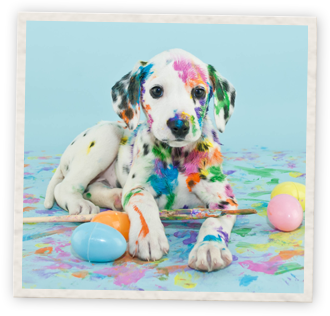The Paw Professor’s Puppy Training Tips
When taking the plunge to get yourself or your family a puppy, there's no surprise that it can amount to quite a large investment. Both in terms of a 10-15 year commitment, and the financial costs that can be associated with it, including vet costs, puppy training, and insurance.
 Such a commitment deserves some thought. Over 15 years of working as Qld Police Officer and an RSPCA Inspector I have seen too many situations where dogs are not provided the appropriate care and attention. All because of a rash decision to get a puppy.
Such a commitment deserves some thought. Over 15 years of working as Qld Police Officer and an RSPCA Inspector I have seen too many situations where dogs are not provided the appropriate care and attention. All because of a rash decision to get a puppy.
Here are a few tips to consider after making the new addition to the family:
- Consult a vet and make sure you know exactly what the puppy requires re vaccinations and diet.
- Read up information on dog psychology either with a few books or on the internet.
- Choose a dog trainer or puppy class.
When it comes to training for the puppy here are a few tips:
- Socialise the puppy well. Expose it to everything you can get your hands on and make sure the situations are not too overwhelming.
- Let the puppy be a puppy (It's vital for them to become a happy and confident dog). Puppies get up to mischief and want to either play with everything or chew everything. I find the best way to deal with the damage around the house is make sure the puppy can only access a place where he/she is allowed to be destructive and damage items at the same time the item they chew is not going to cause them harm. Remember, puppies don't know that they're in a human's house on planet earth, and that items like the TV remote should not be eaten. We have to create a safe and suitable environment for the puppy.
- Be careful not to set too many boundaries/rules and regulations on the puppy. The rules and regulations can be shaped in the coming months.
- Use as much positive training methods as you can. Either praise/toys/food to teach the puppy in a fun and enjoyable manner.
- Provide sufficient water for them in several locations. Puppies have an ability to knock bowls over and empty their water supply.
- Provide sufficient warmth and/or shade depending on the environment.
- Provide an adequate diet, in consultation with the vet.
Early puppy training is important, although I would recommend getting into some more serious dog training when the dog reaches 4-6 months of development.

